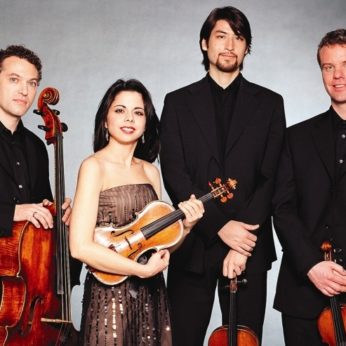Myaskovsky was born into a military background in the Warsaw territories of the Tsarist Empire in 1881. His father designed and built forts along the border with Prussia, and pushed Myaskovsky into a career in military engineering despite his objections and a long and dedicated interest in music throughout his youth.
Upon being enrolled in the St. Petersburg School of Military Engineering in1899, he immersed himself in the musical life of the city, following the work of The Big Five with singular dedication. In this period he began taking private lessons in composition and sat his entrance exams to the St. Petersburg Conservatory in 1907, assessed by Rimsky-Korsakov and Glazunov. His studies at the Conservatory marked an incredibly prolific period and the growth of wide respect for his work, yet this was to be interrupted when he was called to service during the First World War.
In 1919 Myaskovksy left his military career firmly behind when he was invited to the role of Professor of Composition at the Moscow Conservatory. Here he succeeding Sergei Taneyev and taught many leading composers of the next generation, including Aram Khachaturian, Dmitry Kabalevski and Boris Tchaikovsky.
Myaskovsky’s last string quartet was composed in 1949 during the surprisingly fertile period that followed his denunciation by the Central Committee of the Communist Party in 1948 through the infamous Zhdanov decree. Along with Sergei Prokofiev, Dmitri Shostakovich and Aram Khachaturian he was named as a composer in which the formalist anti-public trend has found its fullest manifestations. He was also singled out for his teaching and accused of inserting inharmonious music into the Soviet educational system. His final quartet was dedicated to the Beethoven Quartet, who gave its first performance at the Moscow Conservatory in 1950, two months after the composers death.
The Moderato opens with an earthy lyrical melody in the lower register of the cello, soon to be passed among the other instruments, its shades systematically yet delicately explored. The writing is luxurious and captivating, more reminiscent of the romantic tradition than the work of the contemporaries he was condemned with. The Presto fantastico opens as a headlong charge through unfolding flurries of melody, before sinking into a slow plaintive section that comprises the body of the movement. Its elegiac quality stretches time, until we are hurled back into the breakneck recapitulation of the opening theme.
An elusive quality pervades the Andante, its sentiments ever buoyant despite the overt gravity of its middle passages. Astonishingly complex shades of sentiment are passed over in what seems on the surface to be unusually simple writing, true testament to Myaskovsky’s compositional skill. The final movement catapults us back to the vigour of the presto, its brash striking rhythm underpinning some incredibly catchy melodies. A rousing fanfare marks the focal point of the movement, blossoming forth again and again with its expansive chords, returning to close the piece on a heroic note.
